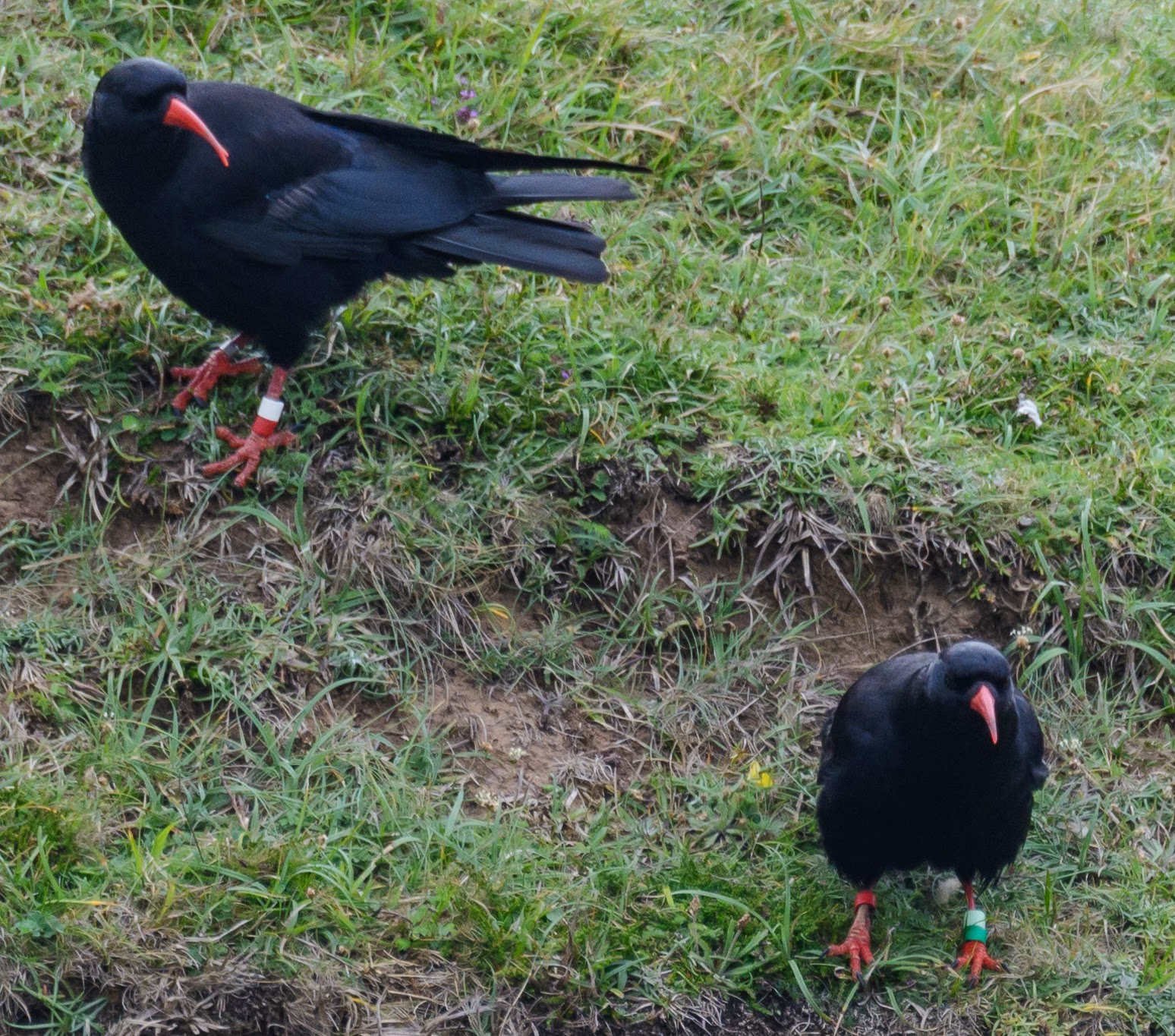Feeding in January 2014
When flying they will often put on an
exhibition of aerobatics that seems to have no point other than to have fun. The
call of the Chough is distinctive (imagine Chough is pronounced to rhyme with “plough”,
rather than “enough” and you’re not far off), and it is a very vocal bird.
Usually Choughs guide you to where they are by their incessant calling. They
are very engaging and often quite easy to approach when they are busy feeding.
It is easy to become a Chough enthusiast.
Pair 1 making a lot of noise near the nest site
Choughs
are resident in south Gower; throughout the winter they are around on the
clifftops probing and digging for prey, usually in pairs or small groups. It
gets a bit quieter in the spring as the serious business of breeding begins. There is then a period of wondering how many birds are breeding and at which sites. In my clifftop area
(Thurba-Mewslade-Rhossili) the tension is over: on June 13 the first juvenile
Choughs appeared. Three birds at first, then it became clear on June 14 that
there are eight juveniles from three pairs, and this is all in about a
kilometre of coastline. One pair is a new one at a new site, as far as I know.
The three broods are four, two and two, with the four being from the longest
established pair (Pair 1). One bird in Pair 1 has a green and a red ring on its left leg; this is quite easy to spot and makes this pair, which I see very frequently, easy to identify.
Pair 1 with their four offspring, June 15, 2014
The smallest of the brood of four looked a bit weak at first but looks fine now:
June 15
The whole brood look to be in good condition:
Both of the birds in Pair 2 have colour rings. Pair 2 near their nest site:
The top bird in the photo has an unusual bill with crossed mandibles (which doesn't seem to be a problem). This is one of their two offspring:Pair 3 came as a complete surprise to me when I came upon them, with one barely fledged juvenile, on June 13. The adults made it very clear that I was not welcome, so I quickly left.
One of the Pair 3 adults displaying aggression towards me
A day later the two adults were on top of the cliff nearest to the nest site with two juveniles, obviously recently fledged. Both of these adults do not have rings. Both juveniles seem to be doing well.At this stage it looks like a very successful breeding season for the local Chough population.









3 comments:
Really nice account Philip and great to hear these birds have had such success this year. Hopefully there will be a similar story from the Pennard end and we look forward to seeing some larger flock later this year.
Hi, I was recently in Rams Grove and saw 7 Choughs. 3 were in pairs feeding while the other was doing an aerobatics display. Hope this update is helpful, all the best Jacob.
p0y42b0l03 x7c91q1l97 w3f91o5k03 c1h38o0h30 q7n81x4u74 u4g19x2m96
Post a Comment